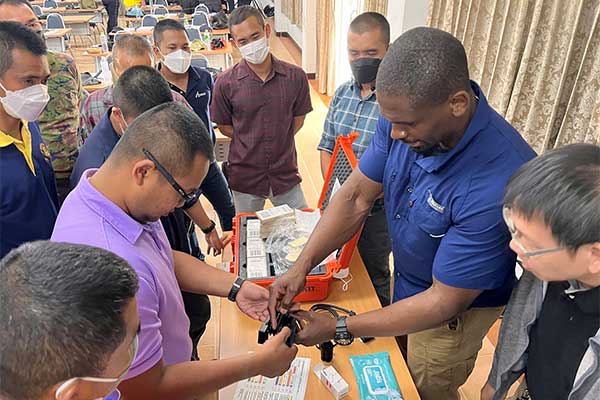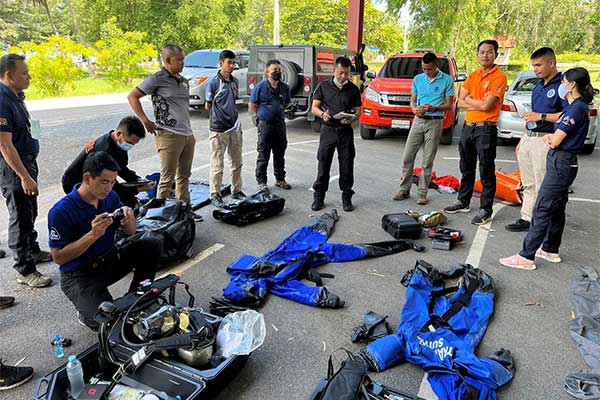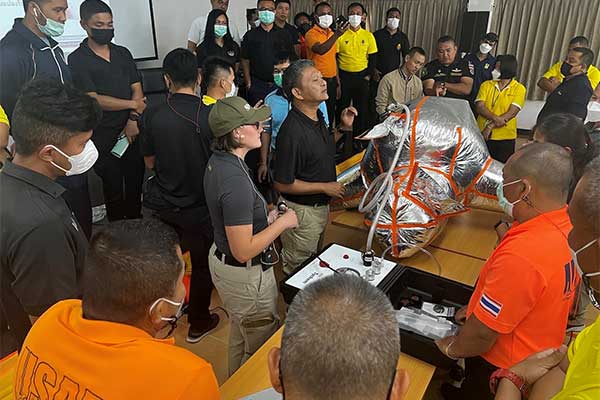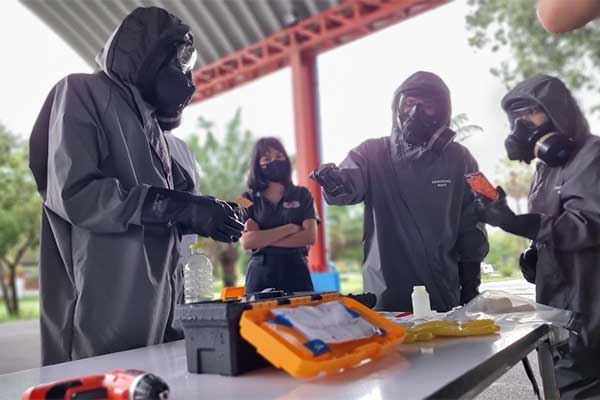This Fall, a Defense Threat Reduction Agency (DTRA) building partnership capacity team completed an intensive three-week slate of training for Thailand. They successfully transferred and provided training on new Chemical, Biological, Radiological and Nuclear (CBRN) detection and response equipment, followed by an in-depth Counter-WMD (CWMD) Operations course.
 Instructors demonstrate CBRN detection, response, and decontamination equipment.
Instructors demonstrate CBRN detection, response, and decontamination equipment.
The equipment was successfully delivered to Thailand’s Department of Disaster Prevention and Mitigation (DDPM) at their Regional Training Center 4 in Prachuap Khiri Khan Province. However, the training was expanded to also include over 65 participants from across the Thailand government interagency to include personnel from: Royal Thai Armed Forces Disaster Response Training Center, Bangkok Fire and Rescue Department, Office of Atoms for Peace, Royal Thai Air Force (RTAF) Explosive Ordnance Disposal (EOD), RTAF Sciences Division, Royal Thai Army (RTA) EOD, RTA Chemical Department, Royal Thai Navy (RTN) EOD, RTN Science Department, Airports of Thailand, Royal Thai Police (RTP) Forensic Sciences, and RTP Bureau of Metropolitan Police. The length and breadth of the training was unprecedented, and highlights the level of commitment from this important Southeast Asia partner.

 Participants learn how to use Personal Protective Equipment (PPE), to include testing for leaks.
Participants learn how to use Personal Protective Equipment (PPE), to include testing for leaks.
The CBRN equipment training consisted of classroom based instruction, hands-on demonstrations, and workshops covering all of the CBRN response equipment’s operational, maintenance, storage, handling, and decontamination procedures.
The CWMD Operations course provided hands-on training and skills required for emergency personnel to respond effectively to WMD incidents. The training covered analysis of CBRN incidents, planning initial response, selection and use of personal protective equipment (PPE), air monitoring, mass decontamination, victim rescue and recovery. The course also included processes for protecting nearby personnel, the environment, and property from the potential effects of a CBRN release.
 During the Capstone Exercises, participants conducted simulated CWMD investigations, including securing the crime scene, collection and testing of evidence.
During the Capstone Exercises, participants conducted simulated CWMD investigations, including securing the crime scene, collection and testing of evidence.
At the end of this marathon training, participants successfully completed a series of hands-on “capstone” exercises where they demonstrated their ability to respond to a simulated WMD. All of the equipment and training provided is interoperable with United States First Responders, thus setting the stage for the United States and Thailand to work together to respond to potential WMD incidents. The event was a major success and positively impacts potential disaster response in Thailand.